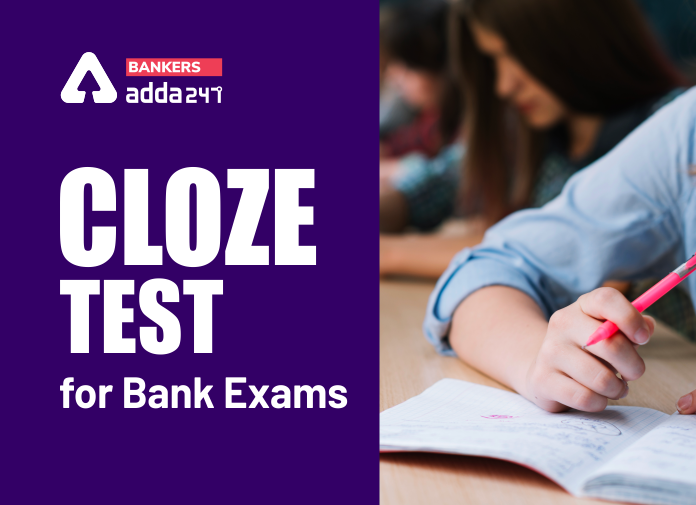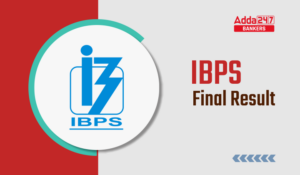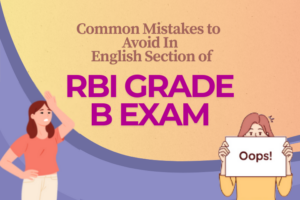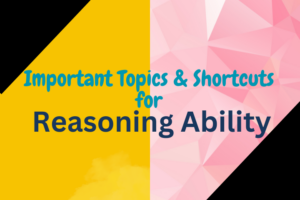Table of Contents
Cloze Test is one of the most commonly asked topic in banking exams. Be it prelims or mains, you will find this topic in both the recruitment stages. This topic alone can help you to fetch some very good marks. It is very much similar to Reading comprehension except the fact that questions asked in this are in the form of fill in the blanks because It tests a candidates understanding of the passage, grammatical skills and vocabulary, and like RC.
We can define Cloze Test as a passage in which certain set of words are missing. The Cloze Test generally contain sentences that are logically connected with each other, have a well-defined structure and pattern and follow a chronological order and students are expected to find some of the missing sentences of the same. Students are expected to select the option which can help in maintaining a unified tone throughout the passage of the Cloze Test. You can also say, that Cloze Test is a combination of Reading Comprehension and Fill in the Blanks.
In examinations, usually there is a cloze test in which there are multiple blanks and each blank has four options to choose from. Candidates are required to select the most suitable alternative from the given options to logically form a coherent paragraph.
Also read,
- Basics Rules of Noun
- Basic Rules of Verb
- Basic Rules of Subject-Verb Agreement
- Basic Rules of Conditionals
Types Of Cloze Tests
We have come across to different types of cloze test in recent times which we will be covering here:
- Find the Sentence that logically follows
- Find a suitable Substitute for already given line.
- Error detection in the highlighted sentence
Given above are some of the types of cloze test which we have seen. One of the things which add to the difficulty level of this topic is ‘No changes required’ option. Make sure that you are well-verse in all aspect of grammar only then you can solve this topic with ease.
Also read,
- How to Increase Calculation Speed to Crack Bank Exams?
- English Grammar Rules that Can Get You Confused
How to Solve Cloze Test?
Step 1: Find the theme of the passage
One of the common mistake that students commit is that they read the first line only and start solving the cloze test. First step should be to read the passage carefully to learn about the theme of the passage. This theme will help you to find answers in a better way and will also help you in substitution method.
Step 2: Understand the Author’s tone
The author of a passage writes it with certain though process and that thought process further build the tone of the passage. Reading the passage carefully in first step will also help you to find the tone of the passage like: is it sarcastic, funny, narrative etc. This will help you to find the sentence in a more easy way. The passage is written in a chronological order and identifying the pattern in the sentence will help you get an idea of the kind of word that you need to fill; whether it is a noun/pronoun/verb/preposition/conjunction/article, etc.
Let’s Understand it with an Example:
Use Of Articles: He opened ___ rack and took ___ bat out
Solution: He opened the rack and took the bat out
Step 4: Use Elimination Method
At times, the options given are so close that it becomes very difficult to to spot the answers. In such cases, use the elimination method technique to discard answers that are most definitely wrong and out of context.
Example:
Ram likes his Coffee steaming ____.
Options: (a). Cold (b) Hot (c). Lukewarm (d) None of the above
Coffee cannot steam when cold or lukeward and hence you can easily eliminate them and is left with option b i.e. Hot which is the right option
Also Read,
Step 5: Find the right word
If you are unable to find the right word then the tone of the passage can help you a lot for example- If the tone of the passage is negative then look for a word that conveys the negative meaning out of the given option. In case all the given options convey negative meaning then read the line before the blank to get an idea about what it is exactly asking.
Final step: Re-read the passage
Now, that you are done with all the steps given above, make sure that you read the passage again to see if your chosen options are in coherent with the passage tone.
Let’s apply all the steps given above in an example given below:
Directions (1-10): Read the following passage and answer the questions following it. Several alphabets are given to help you assist in answering those questions.
With US sanctions on Iran and Venezuela coming into effect on 2 May and Saudi Arabia restraining crude oil output, Indian refiners have started looking for sources of new crude oil supply to feed their _______(A)_______ with heavy sweet crude, in addition to importing from Iraq.
Refiners prefer the heavy sweet crude supplied by Iran and Venezuela, which helps them produce low-sulphur fuel oil ahead of new shipping emissions norms that kick in January 2020. In 2018-19, India imported close to 10% of its domestic oil requirement from Iran. (B)Though refiners said Iran offered commercially(1) attractive oil import terms to India, including a 60-day credit period and revenue(2) on oil and insurance, it will not have a major impact on discounts(3), since for India, it is only 10% of its total oil import(4).
However, Despite US sanctions on Iran, the country’s crude oil supply to India increased 6.24% to 24 million tonnes (MT) in 2018-19, as India managed to import a sizeable volume largely due to sanction waivers provided by the US. (C)Imports from sanction-hit Venezuela dropped 5.56% to 17.32 MT last fiscal year, against 18.34 MT imported in the previous year. Earlier in 2012, sanctions imposed on Tehran by the Obama administration had forced India to reduce its Iranian oil imports by half.
“We have put in place alternatives to replace oil imports from Iran and Venezuela. It was only imperative to look for other options,” according to a senior executive of an oil marketing company, who spoke on the condition of _______(D)_______.
India imports over 80% of its oil needs. Iran was also the third-largest supplier of crude oil to India after Saudi Arabia and Iraq. The cost of oil import went up from $87.4 billion in 2017-18 to $107 billion in 2018-19 as average annual crude oil price went up from $57.85 per barrel to $70.86 per barrel.
Last fiscal year, Iraq maintained its position as the largest crude oil supplier to India in 2018-19, (E)____________________________________________, or a 2% increase in the previous fiscal year, according to data from the Directorate General of Commercial Intelligence and Statistics (DGCIS).
Crude oil supply by Saudi Arabia, leader of the Organization of Petroleum Exporting Countries (OPEC), increased 12% to 40.33 MT last fiscal year. Currently, India’s ______(F)______ suppliers are Saudi Arabia and Iraq. Thanks to the Impose (G), oil exports from the US to India shot up 328% to 6 MT in 2018-19, from 1.4 MT in 2017-18, pushing the US to the ninth position among the top 10 oil exporters to India. US was ranked 18th in 2017-18.
“Availability of crude is not an issue. There are many suppliers in the market. However, for Indian refiners, distance is an important factor as this adds to the freight cost. (H)If an available crude(1) trades at a discount to Brent crude with option (2) of $3-4 a barrel, we can overcome the freight(3) cost, making the crude an attractive difference(4),” according to an official from an oil marketing company. For oil marketing companies (OMCs), 60-70% of crude oil supply is term contract since it ensures a steady supply. Around 30-40% of the crude requirement is imported on a spot basis
(I)Indias’ overall domestic crude oil production declined 7 per cent to 2,713 thousand metric tonne (TMT) in April 2019 due to decline in production from fields operated by Oil and Natural Gas Corporation (ONGC), Oil India and those under production sharing contracts (PSC).The decline in production in the month coupled with a 14 per cent increase in crude oil imports (J) as compared to 83.8 per cent recorded in the corresponding month a year ago. The country had produced 2,914 TMT of crude oil in April 2018.
Q1. Which of the following words given in the options should come at the place marked as (A) in the above passage to make it grammatically correct and meaningful? Also, the word should fill in the two sentences given below to make them contextually correct and meaningful.
(i) Indian OMCs have informed the ministry of petroleum and natural gas about their ______________ production during the month of April 2019
(ii) Though the country is short in producing crude oil, which is turned into fuel at ___________, it manufactures surplus petroleum products.
(a) Supplies
(b) Requirements
(c) Refineries
(d) Ambitions
(e) None of these.
Q2. The sentence given in (B) has four words given in bold. Amongst the given bold words which of the followings must interchange to make the sentence grammatically and contextually correct and meaningful?
(a) 1-4
(b) 2-3
(c) 2-4
(d) 3-4
(e) None of these.
Q3. In the above passage, a sentence (C) is given in Italics. There may or may not be an error in one part of the sentence. Choose the part which has an error in it as your answer. If there is no error, then choose option (e) as your answer.
(a) Imports from sanction-hit Venezuela
(b) No Error
(c) against 18.34 MT import
(d) in the previous year
(e) dropped 5.56% to 17.32 MT last fiscal year
Q4. Which of the following words should fill the blank given in (D) to make it contextually correct and meaningful?
(a) Intricacy
(b) Fidelity
(c) Obscurity
(d) Levity
(e) None of the above
Q5. Which of the following phrases should fill the blank (E) to make it contextually and grammatically meaningful and correct respectively?
(a) 90 per cent of government revenue and 60 per cent of gross domestic product.
(b) which is currently produced around 2.7 million b/d in line with its quota
(c) movement which led to bans worldwide on shopping bags, straws and other single-use items
(d) supplying more than 46.61 MT of crude oil
(e) None of these.
Q6. Which of the following words given in the options should come at the place marked as (F) in the above paragraph to make it grammatically and contextually meaningful and correct? Also, the word should fill the two sentences given below to make them contextually correct and meaningful?
(i) Most parts of the State are already facing the problem of water shortage and availability of water for agriculture could be a _____________ cause for worry in future.
(ii) India’s possible role in developing the terminal had become a _______________ flash point within the government.
(a) Significant
(b) Serious
(c) Subordinate
(d) Collateral
(e) None of the above.
Q7. A word is given in bold in (G). Choose the word which should replace the word given in bold to make the sentence correct and meaningful. If no change is required, choose option (e) as your answer.
(a) Ratification
(b) Embargo
(c) Accreditation
(d) Derelict
(e) No change required
Q8. The sentence given in (H) has four words given in bold. Amongst the given bold words, which of the followings must replace each other to make the sentence contextually correct and meaningful?
(a) 1-4
(b) 2-3
(c) 2-4
(d) 3-4
(e) No replacement required
Q9. In the passage given, a sentence (I) is given in Italics. There may or may not be an error in one part of the sentence. Choose the part which has an error in it as your answer.
(a) Indias’ overall domestic crude oil production declined 7 per cent to 2,713 thousand metric tonne
(b) in April 2019 due to decline in production from fields
(c) operated by Oil and Natural Gas Corporation (ONGC), Oil India
(d) and those under production sharing contracts (PSC).
(e) No error
Q10. Two sentences are given in italics on both sides of (J). Which of the following statements can come in between the two sentences in place of (J) and maintain the continuity of the paragraph?
(a) Pushed the country’s crude oil import dependence to 86.8 per cent
(b) The country’s second largest state-owned oil and gas explorer’s crude oil production fell by 3.32 per cent to 265 TMT.
(c) making up 6.8% of India’s machinery imports in the same period
(d) with foreign capital in hi-tech industry increasing by 41%
(e) None of the above



 IBPS Final Result 2025 Coming Out Tomorr...
IBPS Final Result 2025 Coming Out Tomorr...
 Simple Tips to Avoid Common Mistakes In ...
Simple Tips to Avoid Common Mistakes In ...
 Important Topics & Shortcuts for IDB...
Important Topics & Shortcuts for IDB...




